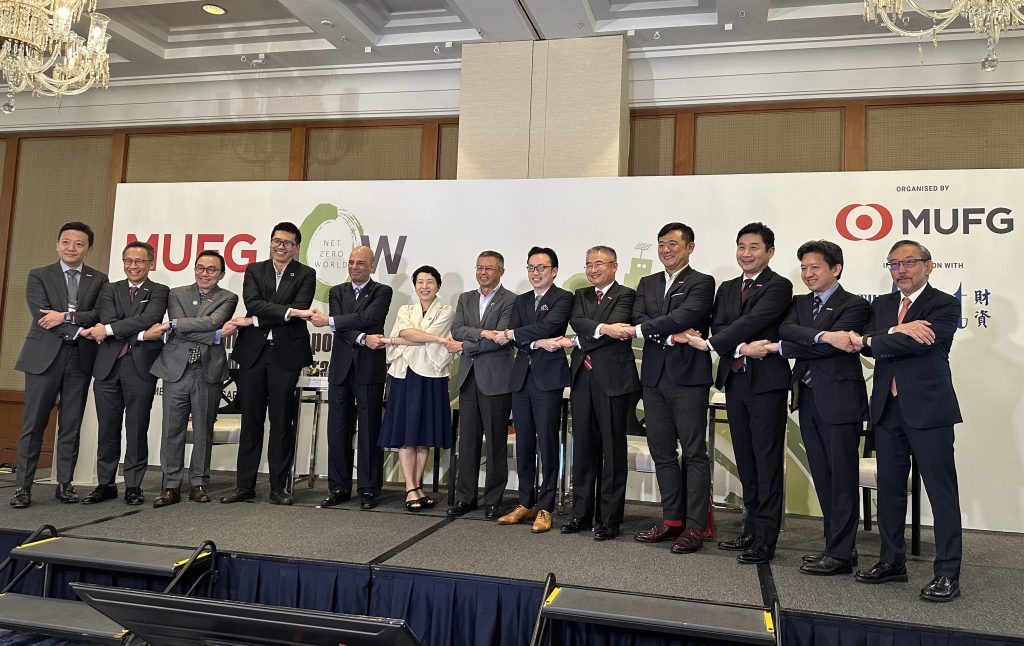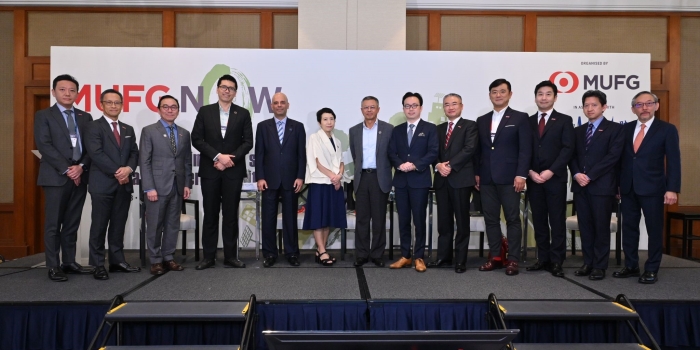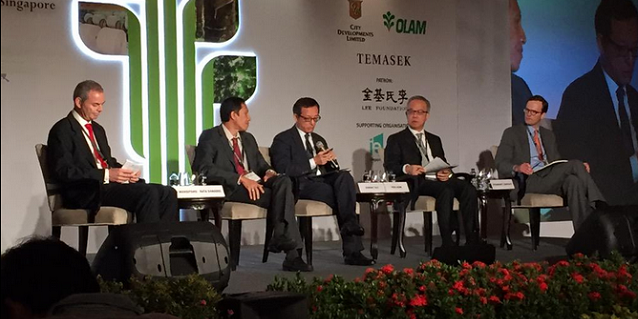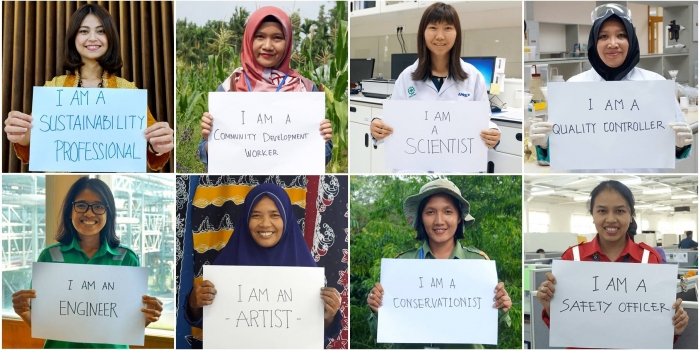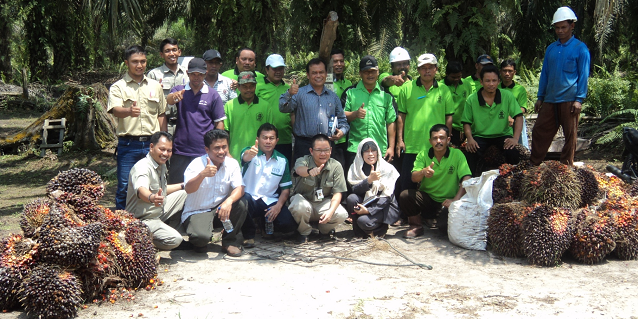In partnership with The Asset, the inaugural session of MUFG N0W took place on 25 September 2023 which placed an emphasis on Singapore’s journey toward decarbonising its economy and establishing itself as a leading advocate of sustainability in Asia. Mr Bey Soo Khiang, Vice Chairman of RGE, attended the event and took part in a panel conversation alongside Jackie Surtani, Regional Director of the Asian Development Bank, Wong De Rui, Vice President of Sustainability Office, GIC and Tomohiro Ishikawa, Chief Regulatory Engagement Officer, MUFG. The panel was moderated by Daniel Yu, Editor-in-Chief, The Asset.
The discussion centred on Singapore’s acceleration towards resiliency and its role in supporting the transition of carbon-intensive industries in Asia. It highlighted the concept of transition finance and the challenges that corporations face in this context. The panel acknowledged Singapore’s efforts in shaping climate data standards and disclosures, demonstrating its commitment to driving climate action and sustainability.
RGE’s Vision for Nature Neutral Solutions
ESG considerations permeate every facet of RGE’s operations, encompassing sustainable sourcing, biodiversity preservation, renewable energy utilisation, research and development investments, stakeholder collaboration, community engagement, and circular economy practices. RGE takes its overarching group-level objectives and translates them into local goals, effectively operationalising them across its business divisions and geographic markets. Leveraging ESG as a business model, RGE’s action plans are being implemented on the ground, where the impact of these actions can be measured objectively, with improvements made to ensure that we can achieve our goals and targets.
As the panel discussed how industries in Asia can move towards greener practices, Mr Bey shared his insights. “Using nature-neutral solutions is the way we do things,” Mr Bey said. As a vertically integrated industry player with established supply chains from upstream to downstream, RGE takes pride in its waste-to-value model which transforms agricultural waste and residual feedstock into sources of energy. Highlighting an example, Mr Bey shared, “Today APRIL is already running on 80% biomass energy – from our trees, we separate lignin from cellulose, dry it, and send it to the boiler to generate power,” he said.
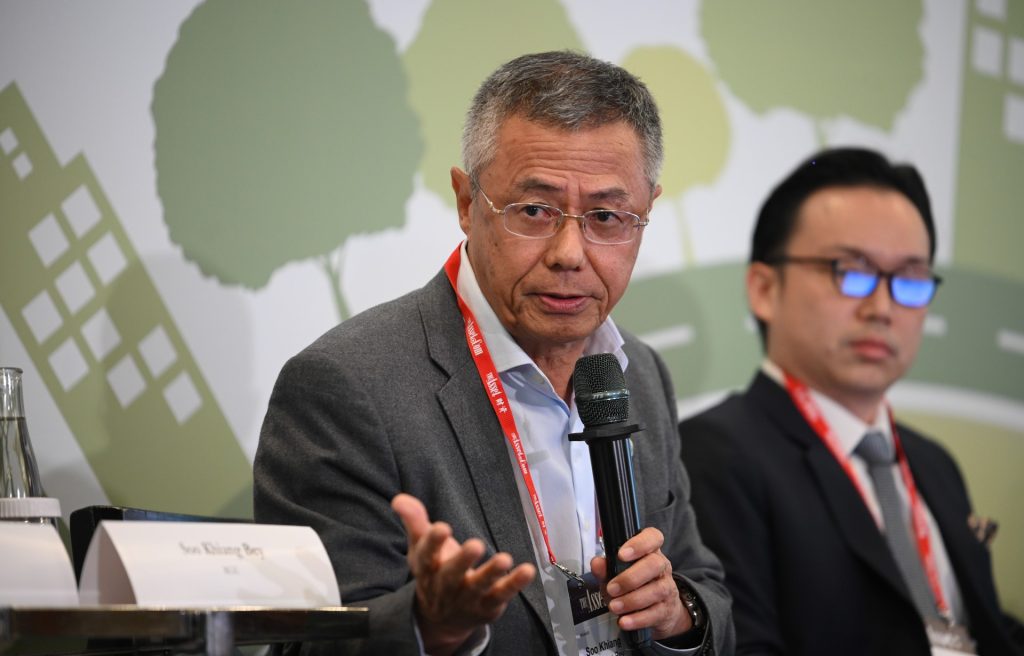
Mr. Bey Soo Khiang, Vice Chairman, RGE, speaking on a panel at the MUFG Net Zero NOW Forum
Mr Bey also elaborated on RGE’s Production-Protection model for its plantations, and its commitment to a 1-for-1 goal of conserving one hectare of forest for every hectare of plantation. “To date, we have conserved and protected 370 thousand hectares of HCV forests – that’s more than 5 times the area of Singapore.” This project includes RGE’s flagship Restorasi Ekosistem Riau (RER) project, which has successfully restored more than 150,000 hectares of ecologically vital peat forest in Indonesia’s Kampar Peninsula.
Leadership and innovation in practice
As the panel discussed the challenges that corporates might face through their green transition, Mr Bey highlighted the invaluable need for employees throughout an organisation to share the vision and goals of its leaders, in order for the transition to be successful. “If we wish to transit, while we (leaders) can set the targets, it’s the employees who are going to make it happen – and we have learnt that from our experience.” Mr Bey used this opportunity to share RGE’s successful construction in Brazil of the world’s largest and greenest pulp mill that is 100 fossil fuel free. Through effective leadership and a shared vision, RGE’s member company Bracell’s facility was designed with key innovations, including a bio-refinery that controls the input of materials to maximise recycling, minimise waste and significantly reduce its environmental footprint.
Being self-sufficient in energy, the surplus of clean, high quality energy is made available to the Brazilian National Interconnected System, while around 95% of the water collected by the plant is returned to the Tiete River after the industrial process, as treated effluent.
“One of our goals is to move towards closed-loop production,” Mr Bey added on RGE’s palm business. He also highlighted Apical’s (another member company of RGE) recent collaboration with CEPSA to construct the largest second-generation biofuels plant in Southern Europe, focusing on the field-to-fuel model that drives it. In a bid to achieve greater circularity, Apical will supply agricultural waste and feedstock to produce sustainable aviation fuel, which can cut carbon emissions by up to 90% compared to traditional jet fuel, and cut 1.5 million tons of CO2 per year.
In conclusion, Mr Bey reiterated his thoughts on the need for teamwork and innovation if a corporate entity wished to successfully achieve a green transition. “If your team aren’t 100% with you, nothing is going to happen. This is very, very important if you want to achieve your net-zero ambitions,” he said.
